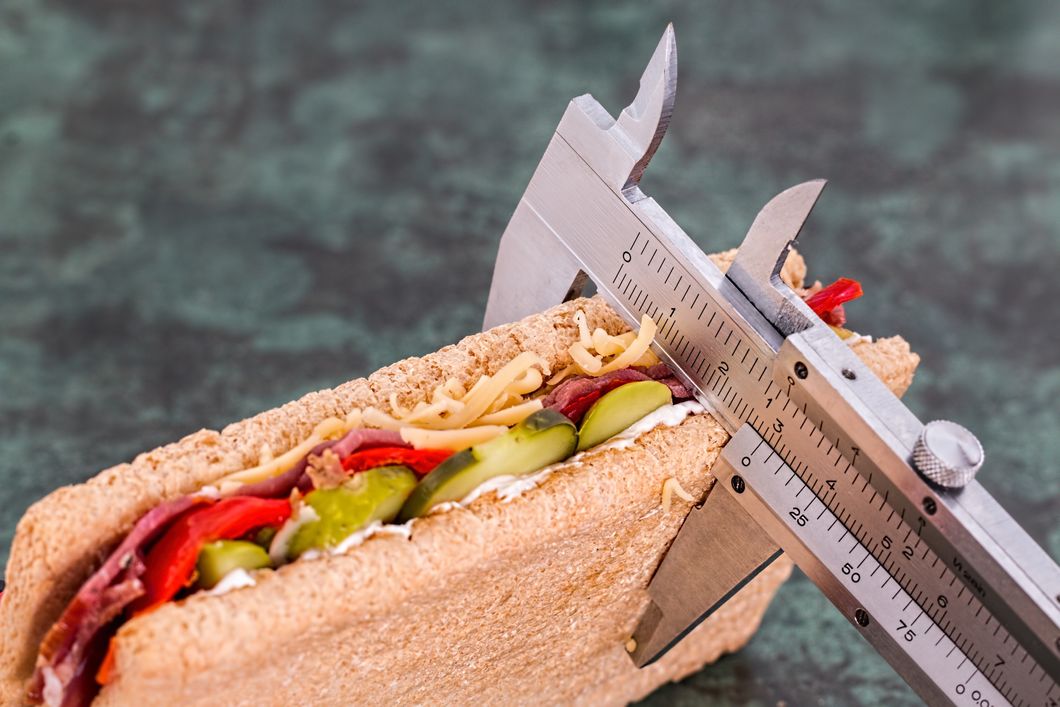I love food—always have and always will. Recently, however, there was a bleak year of my life when I let my fixation with calories and losing weight overshadow my enjoyment of good food. Growing up, the word "calorie" might as well have been from another language—one that I was very unwilling to learn, thanks to its abundance of boring terms like saturated and trans fat. Who wanted to worry about grams of sugar when a cold glass of chocolate Coke (yes, you read that right) tasted so good?
That all changed my second semester of college, when I resolved to eat healthier. I had good intentions: I downloaded MyFitnessPal, went to the gym every single night, and tracked every carrot and apple that passed my lips. I was stunned to learn that certain foods I'd considered harmless were so high in calories and sugar. I was merciless in creating my new diet: no more bread (put that veggie burger on lettuce, please), no salad dressing (hummus instead), and definitely no dessert. Food ceased to be something to enjoy, and instead became a source of stress and worry.
I tracked my food obsessively for about six months before I realized how unhealthy my behavior was. The thought of going out to eat with friends or family made me feel sick. I was eating salad and plain baked potatoes for almost every meal. And even now that I've reestablished a healthy relationship with food, I can no longer help myself from mentally calculating the calories in in my meals.
If I could do it over again, I would have never tracked my calories.
Logging your food makes it all too easy to fall into restrictive behavior. It's far better to eat intuitively: that is, to listen to your body and only eat when you're genuinely hungry (not bored). Think of how incredibly complex and wonderful your body is—surely it also knows when it needs some more fuel.
If you're too fixated on how many calories are in that pasta or breadstick, you could end up denying your body the fuel that it needs. This only increases your chances of binge-eating later—and promotes a vicious cycle of "restrict, binge, feel guilty." Trust me: a healthy, happy relationship with food is worth so much more than the knowledge of how many calories are in that cookie or brownie.
Just because you aren't counting calories, however, doesn't mean you can't have a well-balanced diet. Just make sure your plate is (usually) full of wholesome, satisfying, and healthy foods. Eat enough to feel satisfied, not stuffed. In the end, it boils down to this: stop counting calories, and start making your food count.

















